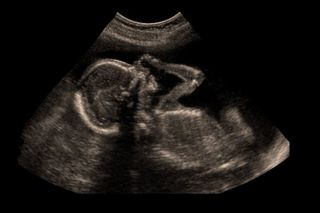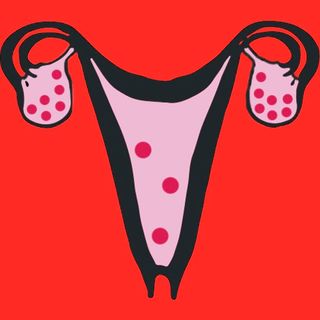
Bombay High Court Ruling Highlights Discrepancies in Application of Abortion Laws
Women who become pregnant through rape need stronger legal rights.

Yesterday, the Bombay High Court ruled to allow a 13-year-old survivor of rape to terminate her 24-week pregnancy.
The minor in question was kidnapped by her rapist from Kalyan, Maharashtra, in July of last year. The 23-year-old man had been working as a laborer in Kalyan, but, after abducting the girl, he took her to his village in Uttar Pradesh. In March of this year — eight months after being abducted — the girl was found by police and retrieved from the UP village. When the police took her for a medical examination upon returning her to Mumbai, she was found to be pregnant.
If this wasn’t upsetting enough, here’s where it gets crazy: When the police came to know about her pregnancy, they, for reasons known only to them, declined to tell the girl or her family that she was pregnant. At the time, she could have legally obtained an abortion, as her pregnancy had not crossed 20 weeks’ gestation, the legal threshold per India’s Medical Termination of Pregnancies Act. (Of the countries that allow abortion, many have a legal limit that falls between 20 and 24 weeks; some, like the United States, have provisions for late terminations, typically when “necessary to preserve the life or health of the woman.”)
When the girl and her family learned of the pregnancy, they were barred from terminating it because she had already crossed the gestational limit. Her father then filed a petition appealing to the High Court to allow the abortion.
In the ruling, Justice Naresh Patil said, “In the present case, the victim was taken for medical examination on March 17 this year and the police came to know that she was pregnant. If they had told the girl or her family about it at that time, she could have been attended to medically immediately.”
Justice Patil also remarked that, in cases such as this one, the police need to inform rape survivors and their families of pregnancy as early as possible, and, if the 20-week cap has not been exceeded, refer them to government hospitals where survivors can seek abortion. If it has been exceeded, the judge observed, it is the police’s duty to inform them of the Medical Termination of Pregnancies Act. Presumably, though not explicitly stated in Justice Patil’s remarks, if the victim or her family were to seek an abortion at that point, they would be met with cooperation from the state courts.
While Bombay High Court decided to permit the 13-year-old girl to terminate her pregnancy yesterday, the Supreme Court made headlines last year for denying an abortion to a 10-year-old survivor of rape who was 32 weeks into her pregnancy. In wake of the ruling, several medical professionals said that being forced to deliver the baby at her age would be dangerous for both her mental and physical health.
Though the Bombay High Court may appear to be moving in the right direction, there is no consistency in precedent to guide decisions when these cases go to court. In July of last year, the Supreme Court allowed a woman to terminate her 26-week pregnancy because the fetus had cardiac abnormalities. But earlier that year, the Supreme Court denied a 26 weeks’ pregnant woman an abortion when her fetus was found to have Down syndrome. In the latter decision, the SC said they would only permit late terminations if the mother’s life was in danger — but in the former case, in which the abortion was granted, the SC announced they were permitting the abortion on the grounds that the baby’s health problems would cause the mother “severe mental injury.”
India has always been progressive when it comes to abortion — it was one of the first countries to legalize it. To this day, our women are legally enabled to take the decision to terminate their pregnancies. Now, we need to turn our eyes to the ways in which our abortion laws are failing women who become pregnant by rape.
While it may be necessary to determine many late terminations on a case-by-case basis in situations where the problem is the fetus’s health, there needs to be definitive legislature in place to allow survivors of rape — especially minors — to terminate unwanted pregnancies beyond the 20-week period.
The justice system also needs to be responsible for making sure survivors and their families have access to all of the survivor’s health information. For example, if a rapist transmits an STD, the police in charge of the case should be obligated to disclose that to the woman. This transparency is fundamental to protecting a rape survivor’s rights.
Furthermore, when the fetus’s health or the life of the mother is the concern, the laws need to be better defined — what, exactly, constitutes putting a woman’s life in danger? What ailments will cause the mother “severe mental injury?” — to ensure the Supreme Court’s decisions are consistent across cases, across the country.
Ultimately, yesterday’s decision came as good news, but in order to fully protect survivors of rape, we need to allow them to terminate unwanted pregnancies by their own decision — not put them through further torment by making them go up against the legal system or carry a rapist’s offspring to term.
Urvija Banerji is the Features Editor at The Swaddle, and has previously written for Rolling Stone India and Atlas Obscura. When she's not writing, she can be found in her kitchen, painting, cooking, picking fights online, and consuming large amounts of coffee (often concurrently).
Related


Sri Reddy’s Strip Protest Is the #MeToo Moment We’ve Been Waiting For
